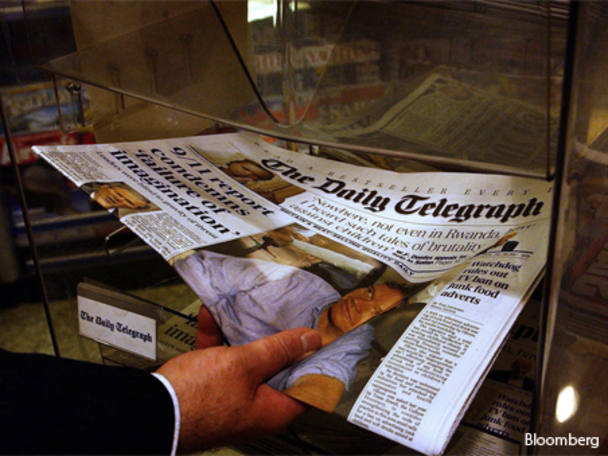PRESS TIPS:
Tempus in The Times says that Balfour Beatty was keen to emphasise to the City yesterday that three fifths of its order book now comes from growing infrastructure markets in transport, power, water and mining. But at the last count, a similar proportion of historic revenue came from construction services and, in the post-Olympics trading environment, the company has had to rely on lower-margin, smaller contracts often outside the booming market in the capital - the regions account for half the construction order book, up from a third a year ago. This was the main reason, as well as a reversal in the American construction market ahead of the election, behind last month's shock profits warning.
There are indications that Balfour Beatty is ramping up its programme of selling mature private public partnership assets. This is good news, because the proceeds can be recycled elsewhere. Over the next three years it now expects to sell assets worth £200m, generating gains of £40m.
Alternatively, the bears' case is that Balfour Beatty is shoring up its balance sheet, which is leaking cash because of outflow from its UK construction activities. One analyst is forecasting an average debt level of £150m through next year.
After their sharp fall last month, the shares sell on a modest seven times this year's earnings and yield 5.7 per cent. But they actually fell after yesterday's presentation, off 3p to 255.25p, which suggests that the market may need more convincing (Last IC rating: Hold, 8 Nov).
Tempus writes that Sirius Minerals confirmed yesterday that its ambitious potash mine there would cost as much as $1bn less than had been thought, at $1.7bn. Potash will be shipped through a pipeline to a plant on Teesside, where it will be filtered and turned into granules for shipping.
Sirius expects to start production in late 2016 at about five million tonnes a year, with the potential to go to 12m. The company, an AIM stock with a market capitalisation just short of £300m, needs to fund the project. Most will come from the banks, but a strategic investor is being sought. A producer in New Mexico, IC Potash, has just struck a deal with one of the big fertiliser producers; a private equity backer is also possible.
Potash has been costing about $230 a tonne on the world market. Because of the nature of the ore produced, Sirius will have to offer a discount, down to as much as $150 a tonne. Cost of production is estimated at $37 a tonne; projections, therefore, suggest that the company should be throwing off $500m or more of cash in the first full year of production.
The two remaining imponderables that could block the project are the planning process and that financing deal. Though they have added 67 per cent since July, Sirius shares at 21.75p are still a penny share. Undeniably speculative, but worth a punt (Last IC rating: Buy, 22 Nov).
Business press headlines:
Republicans in the House of Representatives delivered a counter-offer to President Barack Obama to avert the fiscal cliff, offering some hope of movement in the delicate budget negotiations though the sides remain far from a deal. In a letter to Mr Obama, John Boehner, the speaker of the House of Representatives, presented a $2.2tn deficit reduction package over 10 years, including $800bn in new taxes - much lower than the $1.6tn target for new revenue proposed by the president last week. Under the Republican plan - which was immediately rejected by the White House - the new taxes are to be achieved through broad tax reform, including limiting deductions, rather than an increase in tax rates on the wealthy, which is what Mr Obama is seeking. [Financial Times]
Retailers are expecting a last-minute rush from Christmas shoppers as figures out today show a modest sales rise in November. The British Retail Consortium (BRC) said total UK retail sales were up 1.8 per cent on November 2011, or 0.4 per cent on a like-for-like basis. BRC director general Stephen Robertson said the month got off to a "flying start" helped by end-of-month paydays, mid-season sales and a later half term. But sales growth slowed as November unfolded, suggesting that customers are being careful not to spend too much too soon. [The Scotsman]
Up to 30 gas-fired power stations will have to be built across the country, ensuring that more gas will be produced in Britain by 2030 to guarantee energy supplies, the government will announce this week. Tax incentives and a new body to encourage the development of controversial shale gas will be unveiled as part of a new gas strategy which will be published alongside the chancellor's autumn statement . George Osborne, who is expected to admit that he will fail to meet his target of reducing debt as a share of GDP by 2015-16, will use his statement on Wednesday to claim he is committed to promoting economic growth when he outlines major reforms to the Private Finance Initiative (PFI). [The Guardian]
Eurozone finance ministers approved €39.5bn in aid to Spanish banks on Monday night, formally ending a months-long effort to draw a line under a crisis that had threatened to push the country into a full-blown bailout. The approval was largely preordained, particularly after the same finance ministers said in June they were ready to provide up to €100bn for Spain's banks, which have been brought low by the collapse of the country's housing bubble. [Financial Times]
The financial crisis has been as economically devastating as a world war and may still be a burden on "our grandchildren", a top Bank of England official has said. Andy Haldane, the Bank's executive director for financial stability, added that public anger at the banks was fully justified and that pay in the industry remained too high. "In terms of the loss of incomes and outputs, this is as bad as a world war," he said. "It would be astonishing if people weren't asking big questions about where finance has gone wrong. [The Telegraph]
Ernst & Young has agreed to pay $117 million to settle allegations that it misled investors about the financial strength of a Chinese timber company. It acted as pressure mounted last night on the big accountants over their links with allegedly fraudulent Chinese businesses. Regulators in the United States said that they had charged the Chinese subsidiaries of five global accountancy firms of violating securities laws. The US Securities and Exchange Commission accused the firms - the Chinese subsidiaries of Deloitte, KPMG, PwC, BDO and Ernst & Young - of withholding information on clients that are under investigation. [The Times]
Sir James Crosby, the former HBOS chief, faced accusations from MPs that he sold out his holdings in the bank amid growing warning signs of its looming collapse. Sir James sold around two-thirds of his holdings in HBOS between the time he left in 2006 and its collapse two years later, it emerged at a session of the Parliamentary Commission on Banking on Monday. The bank's former chief executive said he understood how it could be seen as getting out, but that this was not his motivation and that he was "balancing his portfolio". [The Telegraph]
The Tchenguiz brothers are to sue the Serious Fraud Office (SFO) for more than £200m after it scrapped a high-profile investigation into the property tycoons' role in the banking crisis. Robert and Vincent Tchenguiz were arrested by the SFO in dawn raids on their homes in March last year. However, the agency was forced to drop its case against Vincent, pictured, in May and Robert in October. [The Independent]









